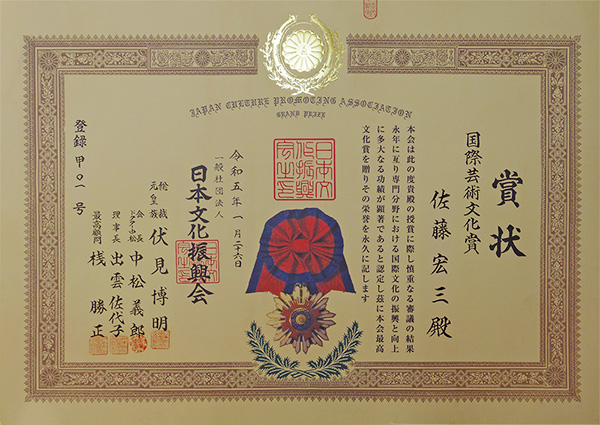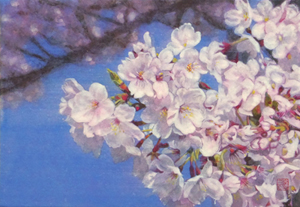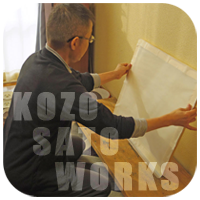Makes custom-made luxury paintings more accessible
Thank you for visiting.
I’m Kozo Sato, a Japanese₋style painter for ‘makes custom-made luxury paintings more accessible’.
I am not only making orders from famous temples and shrines all over the country,
- I’m interested in fine art, but…
- I want a one-of-a-kind, one-of-a-kind piece of art, but…can’t afford to buy that.
For individual customers think that so, I create custom-made high-quality paintings by working out ideas that are close to the customer’s requests and budget.
In addition to full-fledged Japanese paintings, I’m working to make high-quality paintings more accessible, such as “hidden paintings using phosphorescent pigments” that will impress enthusiasts.
If you are interested, please contact me.
thank you.
Kozo Sato
Information on exhibitions
(solo and group exhibitions)
Exhibition information held in the past ⇒Click here for past exhibitions
We will inform you as soon as the exhibition schedule is decided.
「Countryside of Iwamizawa] folding screen
Permanent exhibition
Iwamizawa City Hall New Government Building 4th Floor Lobby

Displayed in the 4th floor lobby of the new Iwamizawa City Hall building.
Anyone who comes to the city hall can watch it freely at any time.
Reiwa 5th International Arts and Culture Award (General Incorporated Association Japan Culture Promoting Association)

On January 26, 2023, I received the International Arts and Culture Award!
The selection was made by a private corporation called the Japan Culture Promoting Association.
And for generations former members of the imperial family served as the president, and Mr. Seibo Kitamura the creator of the Nagasaki Peace Statue was among the founding members.
About 【Japanese painting】
In contrast to Western paintings that came from Europe after the Meiji era, it refers to paintings using techniques and styles native to Japan.
There are categories such as colored paintings and ink paintings.
In the case of colored paintings, in addition to sumi ink, mineral pigments are mainly used, with some organic colors added. And Each color is kneaded with animal protein glue called “nikawa”.
They are painting techniques that require skill.
Draw with a brush on silk, Japanese paper, board, etc.

Before the name “Nihonga” was born, there were many paintings called “Yamato-e” and “Ukiyo-e”.
Traditionally, They are drawing outline, and It emphasizes stylistic beauty over realism. Then they are No shading, and characterized by simple color tones and expressions.
In recent years, Japanese paintings have been influenced by Western paintings, various expressions that are not bound by traditional techniques, and such as expressions with thick layers of paint, realistic drawings, abstract drawings, have come to be seen.
Currently, the distinction as ”Nihonga” is largely based on the materials and techniques used rather than the style.However, more and more painters are introducing new materials to replace glue and drawing methods that are not bound by conventional Japanese painting techniques.
And the category of “Japanese painting” is becoming borderless.







